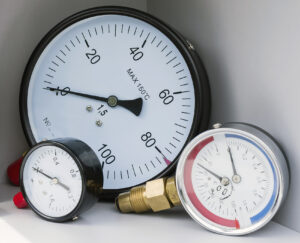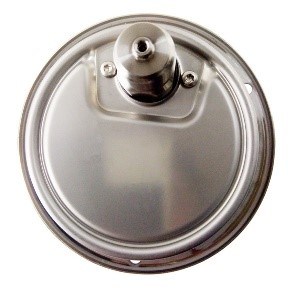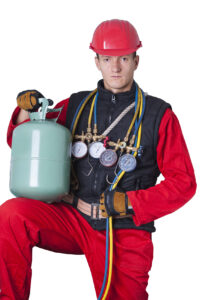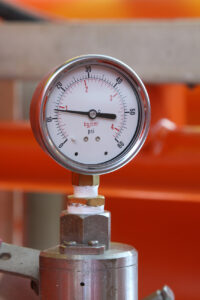Process gauges are vital tools used across a wide range of industries to measure and monitor pressure. They provide critical data that ensures the safety, efficiency, and reliability of industrial processes. This article explores the different types of process gauges, their applications, and best practices for their use and maintenance.
Types of Process Gauges
- Bourdon Tube Gauges Bourdon tube gauges are the most widely used type of pressure gauge. They operate using a curved tube that straightens under pressure, causing a pointer to move across a dial. These gauges are known for their durability and accuracy, making them suitable for various industrial applications, including HVAC systems, hydraulic machinery, and chemical processing.
- Diaphragm Gauges Diaphragm gauges utilize a flexible diaphragm that deforms under pressure. The deformation is translated into a mechanical movement that drives the pointer on the gauge. These gauges are particularly useful for measuring low-pressure and differential pressure applications, often found in gas distribution and filtration systems.
- Bellows Gauges Bellows gauges use a series of metal bellows that expand and contract with pressure changes. They are ideal for low-pressure applications and are commonly used in leak detection and low-pressure gas measurement systems.
- Digital Process Gauges Digital process gauges provide electronic pressure measurement and display. They offer high accuracy, data logging capabilities, and easy integration with control systems. These gauges are widely used in laboratories, calibration facilities, and automated industrial processes.
Applications of Process Gauges
- Industrial Manufacturing Process gauges are essential in industrial manufacturing for monitoring and controlling pressure in various systems. They ensure that equipment operates within safe parameters, preventing overpressure conditions that could lead to equipment failure or safety hazards.
- HVAC Systems In heating, ventilation, and air conditioning (HVAC) systems, process gauges help maintain the correct pressure levels in refrigerants, ensuring efficient operation and energy savings.
- Hydraulic Machinery Process gauges are used in hydraulic machinery to monitor the pressure of hydraulic fluids, ensuring the proper functioning of equipment such as lifts, presses, and construction machinery.
- Automotive and Aerospace Industries In the automotive and aerospace industries, process gauges monitor tire pressure, brake systems, and hydraulic systems, contributing to the safety and reliability of vehicles and aircraft.
- Water and Wastewater Treatment Process gauges play a crucial role in water and wastewater treatment plants by monitoring the pressure in filtration and pumping systems, ensuring effective treatment and distribution of water.
Best Practices for Using Process Gauges
- Choosing the Right Gauge Selecting the appropriate process gauge for the application is critical. Factors to consider include the type of pressure (gauge, absolute, or differential), the pressure range, the process medium, and the required accuracy.
- Proper Installation Proper installation of process gauges is essential for accurate readings and longevity. Ensure that gauges are mounted in a vibration-free location, use appropriate fittings, and avoid over-tightening, which can damage the gauge.
- Regular Calibration Regular calibration of process gauges ensures that they provide accurate readings over time. Calibration should be performed according to the manufacturer’s recommendations and industry standards.
- Maintenance and Inspection Periodic maintenance and inspection of process gauges help detect issues such as leaks, blockages, or mechanical wear. Regularly checking the condition of the gauge and its connections can prevent unexpected failures.
- Environmental Considerations Consider the operating environment when selecting and installing process gauges. Factors such as temperature, humidity, and exposure to corrosive substances can affect gauge performance. Choose gauges with appropriate materials and protection for the given environment.
Process gauges are critical instruments for monitoring and controlling pressure in a variety of industrial applications. Understanding the different types, applications, and best practices for using these gauges ensures accurate pressure measurement and contributes to the safety and efficiency of industrial processes. Regular calibration and maintenance, along with proper selection and installation, are key to achieving reliable performance and extending the life of process gauges.



